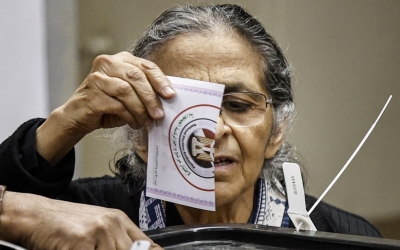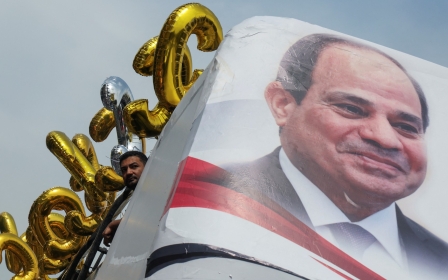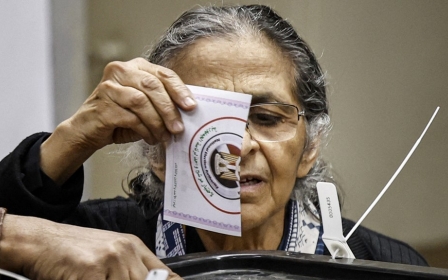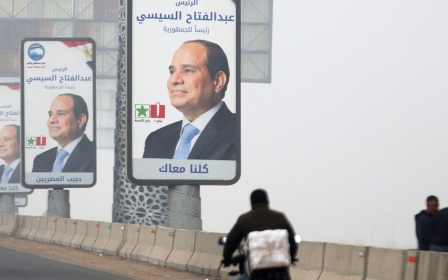Egypt: President Sisi secures third term after vote marred by bribes and intimidation
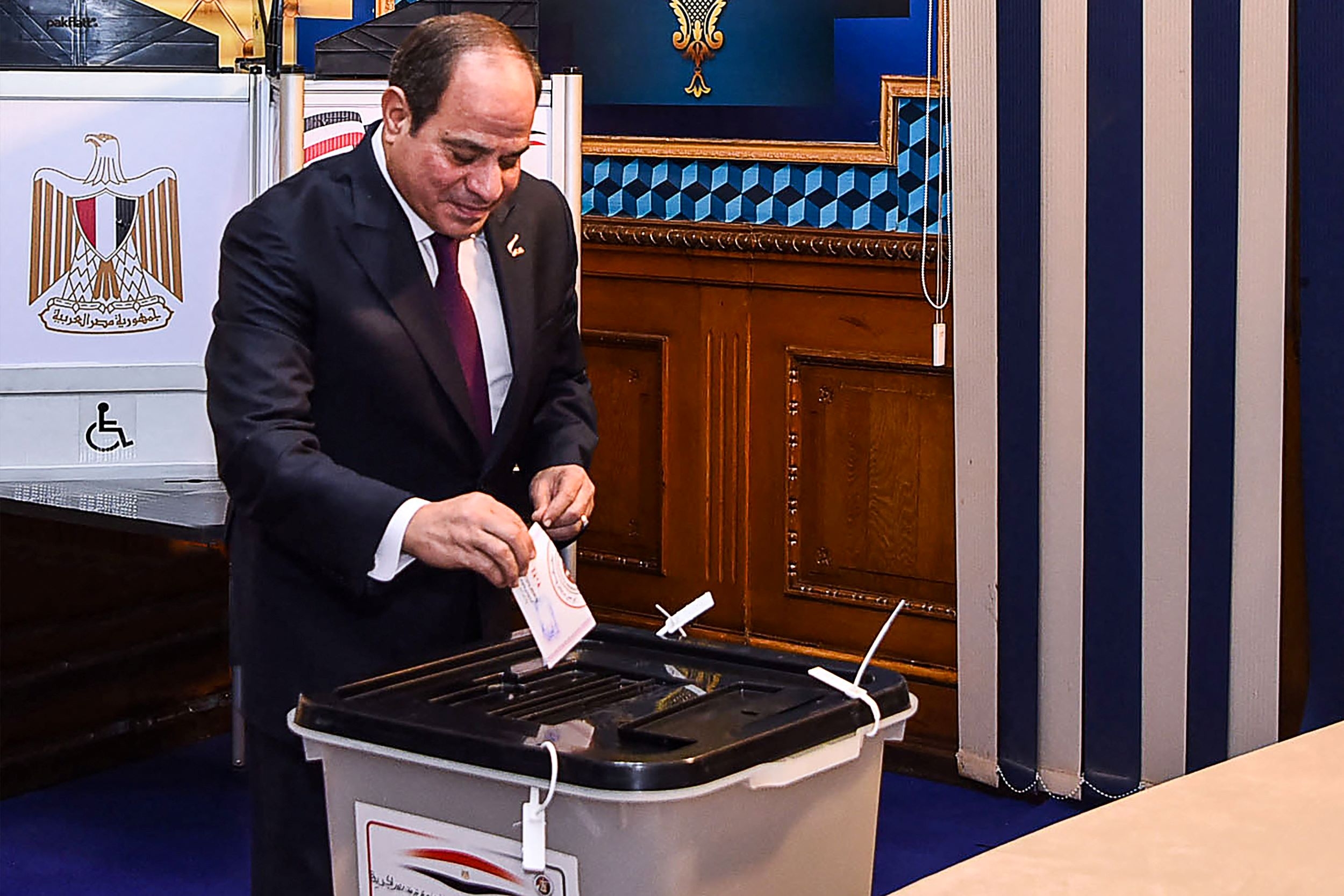
Egyptian President Abdel Fattah el-Sisi has been elected for a third term in office, securing 89.6 percent of the vote in last week's election.
The Egyptian election authority head Hazem Badawy said on Monday the turnout reached an "unprecedented" 66.8 percent of Egypt's 67 million voters, while over 39 million voted for Sisi.
Runner-up Hazem Omar, leader of the Republican People's Party, received just 4.5 percent of the vote.
It was a largely unsurprising result for Sisi, who has ruled Egypt for around a decade since overthrowing democratically elected ruler Mohamed Morsi in 2013.
Government mobilisation efforts, largely involving bribes and intimidation, were put into effect in the run-up to the vote to secure widespread support for Sisi, as a high voter turnout became a crucial measure of the incumbent president's popularity in the absence of any significant contenders.
New MEE newsletter: Jerusalem Dispatch
Sign up to get the latest insights and analysis on Israel-Palestine, alongside Turkey Unpacked and other MEE newsletters
Sisi is set to rule until 2030, amid the backdrop of challenging economic conditions and an ongoing conflict on the country's border with Gaza.
Sisi's rule, since he first became president in 2014, has been marred by a ferocious crackdown on dissent, with an estimated 65,000 political prisoners currently held in Egyptian jails over their criticism or opposition to the president. Torture has become widespread and systematic, while thousands have been forcibly disappeared.
Those who ran against Sisi in the previous two elections, or expressed their wish to run, have been either excluded from the vote or jailed.
Two more prominent opposition figures had attempted to run in the 2023 elections, but were quickly sidelined by the government. Today, one, Hisham Kassem, is in prison, and the other, Ahmed Tantawy, is awaiting trial.
Tantawy, a leftist politician who was backed by Sisi's opposition, withdrew from the presidential race citing major violations against him and his campaign members.
Tantawy and dozens of his campaign members are under trial for fraud, a charge many view as an act of reprisal for challenging Sisi.
Soaring inflation
Egyptians have been struggling with soaring prices, as the country of 105 million people, of which nearly a third live in poverty, experiences its worst financial crisis in recent history.
Food inflation is hovering above 45 percent, with some people criticising the state for prioritising mega-projects.
Since 2016, Sisi has undertaken a number of economic reforms that include high-cost projects that have failed to deliver promised benefits.
Meanwhile, the national debt has tripled and the currency has lost more than half its value, leaving Egyptians struggling to make ends meet.
The election has been overshadowed by the war in neighbouring Gaza, where Israel has been conducting a relentless bombing campaign since 7 October.
The bombing, coupled with a ground offensive, has displaced 1.8 million people across the besieged territory, forcing tens of thousands toward Gaza's southern border with Egypt where they face an uncertain future as to their ultimate destination.
Sisi has said Egypt would reject the forced displacement of Palestinians into Sinai.
Middle East Eye delivers independent and unrivalled coverage and analysis of the Middle East, North Africa and beyond. To learn more about republishing this content and the associated fees, please fill out this form. More about MEE can be found here.


